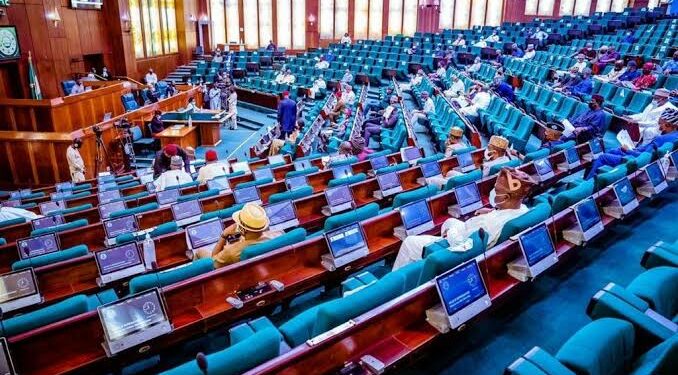A Bill that aims to ensure timely and full payment of salaries to employees by employers and corporate bodies in the country has been proposed by the House of Representatives.
The Bill, titled the Employees Remuneration Protection Bill, 2023, is sponsored by Wale Hammed, who represents the Agege federal constituency in Lagos State in the House.
The Bill, which has passed its first reading, states that it is illegal for any employer to “refuse or neglect to pay the remuneration of his employees, as provided under this Act,” as per Section 7 (1).
According to Section 8 (1) of the Bill, employees who do not receive their salaries within the stipulated period allowed by this law can make a written request to their employer for their due payment if they want to pursue their claim.
However, the Bill also says that “if an employee fails to remit payment within five business days following service of a demand under Section 9 of this bill, the employee may petition the court for redress by filing a motion on notice.”
The Bill prescribes a prison sentence of three to six months, with no option of a fine, for employers who are convicted of not paying their workers’ salaries.
The Bill also imposes a fine of N10,000 per day of default, or “be sealed off for a period not exceeding three months, provided that the default extends beyond two months,” on any corporate body that does not comply with a court order regarding the payment of its employees’ salaries.
Furthermore, the Bill levies a fine of N10,000 on any officer or agent of the organization, government parastatal, agency, body, or institution who intentionally or knowingly authorizes or allows the default or noncompliance with the order until it is obeyed.
The Bill also requires employers to give written terms of employment to employees who resume work for terms of employment longer than one month within fourteen working days of the employee’s resumption.
The employment contract, which must be signed by the employer and employee, must clearly state the terms and conditions, remuneration, and methods of payment, as well as the nature of the employment and the procedure for terminating it by either party.
Additionally, the Bill states in Section 27 that an employee’s petition to the court for payment of remuneration shall not be a reason for “disciplinary action, inquiry, suspension, or termination of the applicant by the employer.”
The Bill also provides in Section 28 that in case of an employer’s bankruptcy, the payment of all outstanding salaries to employees shall be given priority.
The current Chief of Staff to the President, Femi Gbajabiamila, had proposed a similar bill when he was the speaker of the House of Representatives.
The bill was called the ‘Employees/Workman (Unpaid Wages Prohibition) Bill 2016’ but it was withdrawn for reconsideration by the 9th Assembly, where it passed the first reading in July 2019.
In the explanatory note, Gbajabiamila had said: “This bill seeks to provide for the prohibition of late payment, non-payment, and underpayment of workers’ wages in Nigeria and prescribes penalties for violations and for other matters connected thereto.”













